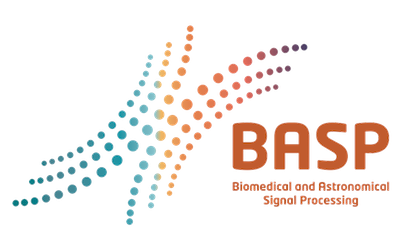“R4” Reconstruction, Resolution, Regularization and Representation – Overcoming Medical Imaging Challenges
Abstract:
This session explores the critical “R4” challenges—Reconstruction, Resolution, Regularization, and Representation—that are central to advancing medical imaging technologies. With a strong focus on how novel computational methods, including machine learning and physics-informed techniques, can address longstanding limitations in image quality, acquisition time, and motion artifacts, this session highlights innovative approaches across a range of medical imaging modalities, including MRI, PET, and photoacoustic tomography (PAT), demonstrating synergistic opportunities for overcoming common imaging challenges.
Organiser & chair: Julia Schnabel
Session Schedule
- 8:00 - 8:20
- Session organiser talk: Deep Learning for Motion Correction in MRI
- Julia A. Schnabel
- 8:20 - 8:40
- Invited talk: Longitudinal MRI with Interleaved High- and Low-Field Scans and Feature-Fusion Transformers
- Efrat Shimron
- 8:40 - 9:00
- Invited talk: Model-based Quantitative MRI Meets Machine Learning
- Gary Zhang
- 9:00 - 9:20
- Invited talk: Machine Learning in PET Image Reconstruction – Opportunities, Challenges, and Common Pitfalls
- Georg Schramm
- 9:20 - 9:40
- Invited talk: Towards Accurate Quantitative Photoacoustic Tomography: Combining Model and Learning Based Algorithms
- Andreas Hauptmann
- 9:40 - 11:00
- Invited poster: AI-guided maternal and fetal low field MRI
- Jana Hutter
- 9:40 - 11:00
- Invited poster: Neural Implicit k-space Representations
- Daniel Rueckert
- 9:40 - 11:00
- Contributed poster: Physics-Informed Deep Learning for Motion-Corrected Reconstruction of Quantitative Brain MRI
- Hannah Eichhorn*
- 9:40 - 11:00
- Steering committee poster: Optimizing Learned Unrolled Networks for Low-latency Image Reconstruction
- Florian Knoll
- 9:40 - 11:00
- Steering committee poster: The R2D2 Deep Neural Network Series Paradigm for Scalable Non-Cartesian Magnetic Resonance Imaging
- Yves Wiaux
